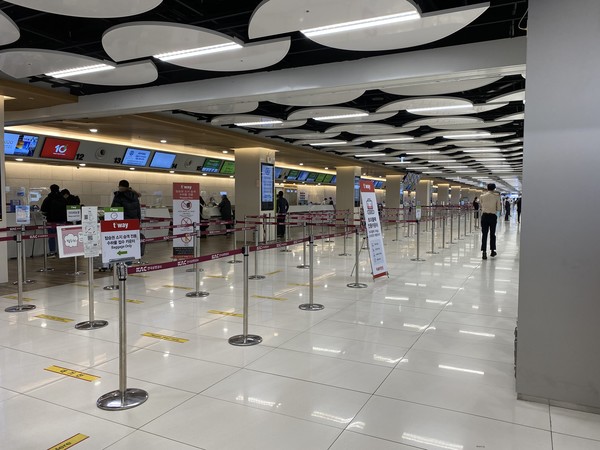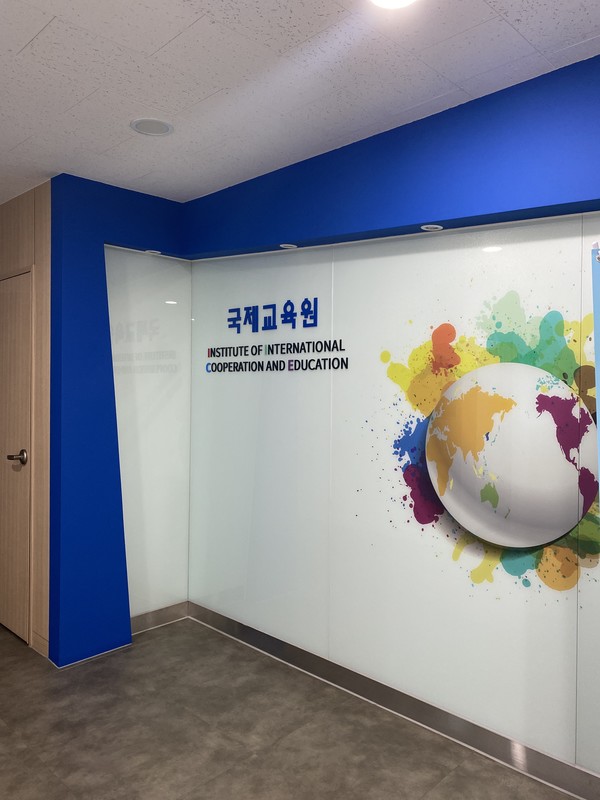According to a survey by the Human Resources Development Service of Korea, from 2015 to 2019, the number of overseas employees increased continuously from 2,903 to 6,816. However, from January to May of last year, the number of overseas employees decreased to 2,229, which is only 33 percent of the number in 2019. This is the result of the global spread of COVID-19 last year and the difficulties with visa issuance. Nevertheless, even under this circumstance, programs related to overseas activities are ongoing. Currently, many universities are still providing programs to support young people who wish to enter overseas markets. There are many students who want to become exchange students to facilitate their ability to get a job abroad.

At University of Seoul (UOS), exchange students for the second semester of 2021 and overseas students for the summer semester have already been determined. In fact, Job Korea, a job placement platform, surveyed 2,100 job seekers in their 20s and 30s on "foreign employment preference," and 8.5 out of 10 said they wanted to get a job abroad if they had the chance. Therefore, even if COVID-19 prevents people from acquiring jobs overseas, people still prefer to experience jobs abroad.

< Why do job seekers choose foreign countries over Korea?>
First, there are many highly educated people in the Korean workforce market. The percentage of young people in Korea with more than a college diploma is about 11 percent higher than the OECD average. Korea’s education level has topped the OECD since 2009, but their employment is among the lowest. In fact, the unemployment rate for Korean youth among college graduates has worsened from 5.0 percent to 5.7 percent over the 10 years from 2009 to 2019. Therefore, a foreign market with a larger structure and size than that of Korea may be attractive to them.
Second, the working environment among the reasons for the low employment rate. According to OECD statistics on labor, Korea is among the countries with the longest working in the world. In 2017, the average annual working hours of 36 OECD countries was 1,746 hours. The average annual working hours of a Korean worker was 2,024 hours, the second longest among OECD countries after Mexico. On the other hand, the United States, Japan, and Australia, where many people get a job, had averages of 1,780 hours, 1,710 hours, and 1,676 hours, respectively. Moreover, according to OECD statistics, Korea's total industrial accident rate is about 25 percent of the OECD average, which is very low, while its industrial accident death rate is the highest. Although the death rate is generally high as there are many accidents, there may be many cases where the death rate was not treated as an industrial accident because of concerns regarding disadvantages. Therefore, Korean job seekers tend to want to get jobs abroad in consideration of welfare because the working environment in Korea is not ideal.
In 2019, the average wage in Korea was 42,300 USD, ranking 19th among 35 OECD countries, excluding Turkey and Colombia. It was the highest ranking since 2003, but it is still 87 percent of the OECD average. Particularly in Silicon Valley in the U.S., the annual salary of IT software developers is much higher than in Korea. Furthermore, the salary and working conditions of large companies in the U.S. such as IT, finance, and law firms are much better than those in Korea; thus, many people want to work in the U.S. Therefore, people hope to acquire a job abroad to get a higher salary, even if it is the same job as one they could get in Korea.
Getting a job in Korea is becoming more and more difficult every year. Therefore, people tend to get jobs abroad because they want to avoid the situation of preparing to get a job in Korea. Thinking about getting a job abroad only with the intention of getting a job comes with many concerns. For example, many Koreans are getting jobs in Japan because it is relatively easier to get a job there than in Korea. However, the jobs that Koreans get in Japan are mainly limited to manufacturing, office jobs, or service jobs, and it is difficult to see many advantages compared to Korea except for the relative ease of obtaining employment. Furthermore, even if the salary is similar to that of a Korean company, the cost and expenses of living abroad are much higher, so consideration should be given in terms of expenses. In addition to the cost problem, Korean workers often quit their job abroad quickly because it is difficult to adapt as foreign countries have distinct cultural differences in comparison to Korea. Thus, is necessary to decide to get a job abroad only after fully considering various conditions and advantages.
<Interview with job seeker>
Regardless of the number of individuals who wish to work abroad, the number of actual overseas workers has decreased significantly in the face of practical difficulties. However, those who want to get a job abroad, such as student A and student B, are continuing to prepare. According to a previous survey by Job Korea mentioned above, there are many people like them. The UOS Times asked them about the current situation.
Q. Why do you want to get a job abroad?
A: The market in the field I am interested in is more active overseas than in Korea. I want to get a job in a foreign company and do what I want to do in a bigger market. This will also be a useful career for future employment in Korean companies.
B: I thought it was appropriate to get a job abroad because I got used to Western culture by following foreign curricula for a long time. Also, I would like to get in-depth answers to international issues while communicating with people of various races in multinational companies.
Q. What do you preparing for this?
A: The most important indicator is the grades when you get an internship or a job abroad. I can prove my expertise and skills in my major through my grades. Also, I try to participate in many activities outside of school. There are contests, internships, etc. There are many students who have studied well or experienced practical work these days, so students who do not have a lot of experience are at a disadvantage. I recommend LinkedIn.
B: International perspective is important. I am currently collecting articles and information about overseas employment from various media and raising awareness of international problems. I also participated in the overseas internship guarantee program and was given the opportunity to work as an intern at companies in various countries.
Q. What are some difficulties in preparing?
A: The biggest problem is that sometimes it is hard to find your own way. Acquaintances who have been employed abroad work in different fields. Therefore, there were cases where I could not find answers to many questions easily. In this case, I asked for help from a community of school seniors, LinkedIn, or people who share a common goal with me.
B: In the West, racism is so deeply rooted in the system of society. While preparing, sometimes the wall of discrimination is felt so heavy, and there were many moments when I wanted to give up.
<Interview with the UOS Institute of International Cooperation and Education>
The UOS Institute of International Cooperation and Education (IICE) is also aware of this trend. An official from the IICE said that the number of applicants for overseas dispatch programs has decreased due to difficulties in leaving the country, but the number of applicants has remained stable. Surprisingly, there was no sharp decline even when nearly all overseas options were restricted. According to the IICE, most of the applicants were senior students, and their primary goal was to improve their experience, knowledge, and language skills before graduating. In fact, it is said that foreign companies regard experience as the most important criterion for evaluation, and this is also true in Korean companies. In other words, English skills learned directly from abroad are more advantageous for a business than English learned in Korea.
The IICE is preparing various programs for students in response to this trend. The biggest advantage is that there is no limit to the number of participants. There is an advantage to being a "newbie" because the IICE selects students who have never applied to programs as a priority. However, UOS has many programs, enough for students who have experienced the program several times. There are four major overseas dispatch programs for this school: the Student Exchange Program, Global Internship, Short-term Dispatch, and Double Degree.
Even after the closure of national borders, the doors of foreign countries are not closed. Various events and programs are being held not only inside our school but also outside. Even if you have not gained overseas experience through these programs, there are other paths available. The Human Resources Development Service of Korea is operating an overseas employment academy to help young Koreans strengthen their job search capabilities. The academy allows students to take formal English courses. Moreover, UOS programs are available now, providing students with diverse experiences. Each program has a similar annual recruitment period, so you can refer to last year's and check the announcement wall. In addition, there are opportunities to interact online with foreign students at school, such as via Seoulmate.
Likewise, related programs are steadily proceeding. Moreover, the number of people preparing for overseas employment is maintaining a certain number, so those who prepare now will not feel left out. This preparation process may not only be for overseas employment but may be the beginning of an unexpected entry into new fields such as domestic entertainment companies. If one begins preparing now, they will be able to get to a better position when competing in the overseas job market after the crisis has receded. Due to practical difficulties, there should be no disregard for the possibilities mentioned above. The UOS Times hopes that overseas job seekers from the UOS can gain maximum experience.

